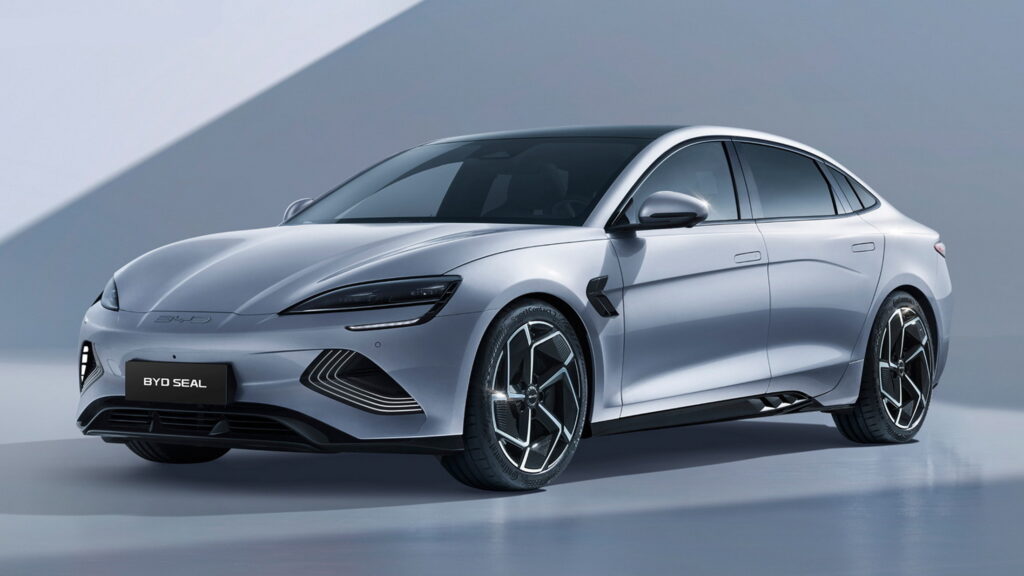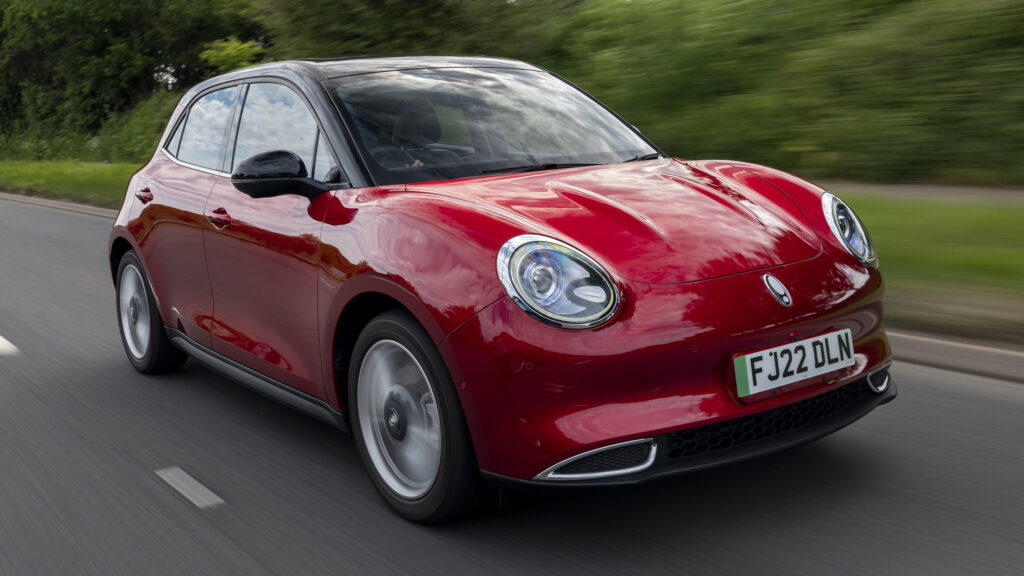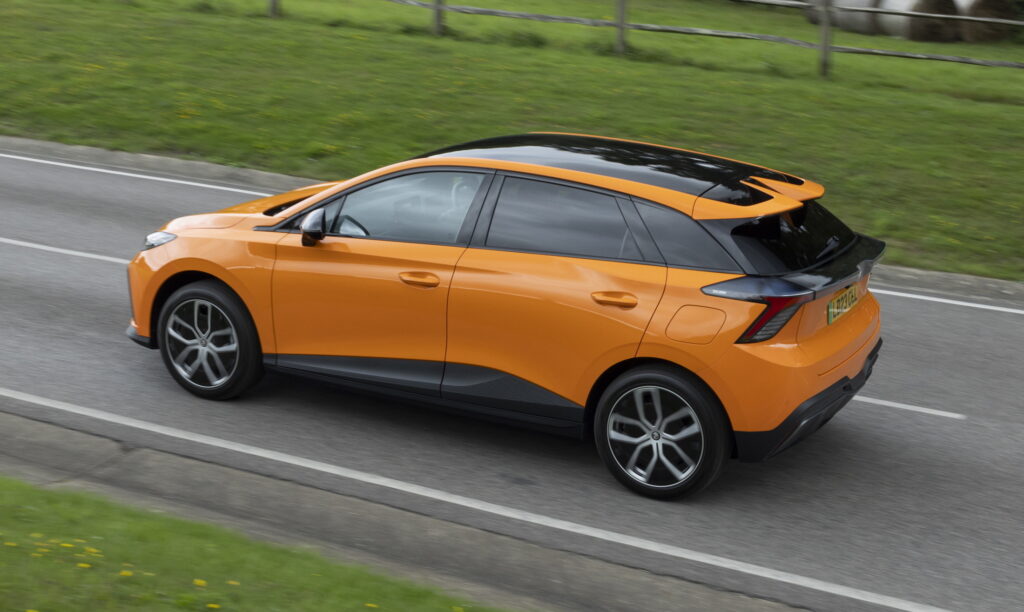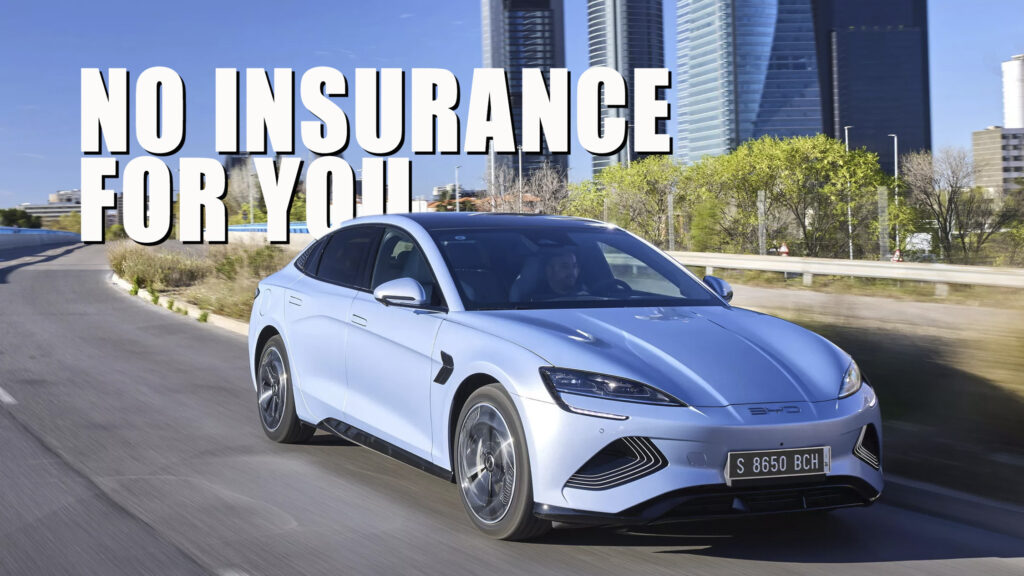Chinese EVs are being shunned by insurance companies in the UK, with many new models being virtually uninsurable while others have prohibitively high premiums. This phenomenon is primarily due to fears of high repair costs, lack of technical information, and long lead times for replacement parts.
Cars identified in a report by Auto Express as being challenging to insure include the BYD Seal, GWM Ora 03, and even some MG models. The UK’s insurance industry-funded risk intelligence company, Thatcham Research, attributes apprehension to the Chinese automakers’ lack of understanding of European repair processes.
Ben Townsend, the head of Thatcham Research, is quick to point out that he feels there’s nothing wrong with the cars themselves. Instead, he thinks new-to-market EV makers haven’t appropriately engaged with the insurance industry.
Related: EV Owners Face Soaring Insurance Rates In UK, Pay Double What ICE Cars Do

“The message to Chinese organizations, and those in India and Vietnam, is don’t just bring a car to the UK market and think you can sell it,” says Townsend. “Come and talk to us, understand the market, understand the steps you need to take so that when you do bring it to market, you do have the right logistics in place. We do have an independent repair network that can support your vehicle and make it sustainable in the marketplace, driving down total cost of ownership and ensuring consumers get the choice they deserve.”
However, it’s not just Chinese EVs that have been victims of spiraling insurance costs in the UK. A report earlier this year showed that EV users are paying nearly double the premiums of those who drive combustion vehicles. A separate story, again focusing on the UK EV insurance market, reported the ballooning costs faced by Tesla owners. At the same time, one provider opted not to renew cover on a Smart EQ ForFour.
Yet another report highlighted how insurers are writing off cars from mainstream Western manufacturers due to minor battery issues. Vehicles that use batteries as structural elements are more prone to being totaled by insurance companies.
Further Reading: Insurers Are Totaling EVs For Minor Battery Issues, And That’s A Problem For Everyone

However, Martyn Rowley, executive director of the UK’s National Body Repair Association, singles out Chinese manufacturers and the lack of parts availability. Speaking to Auto Express, he cited the GWM ORA 03 (formerly known as the Funky Cat) as an example: “We have repairers that have written that car off for stupid reasons, for something that would fly through a bodyshop if it were a Ford or a Vauxhall,” he says. “Unfortunately, you just can’t get parts; they’re not available for that vehicle, which I think is ridiculous considering that these are multi-million-pound businesses.”
Auto Express asked GWM ORA about the issues, and a company spokesperson confirmed that they were aware of some owners facing difficulties obtaining insurance coverage. They also said they are taking several steps to improve things, although the company claims that good parts availability is ensured. GWM ORA suggests that the issue may, in fact, lie with an unfamiliarity with the brand, with “third-party communication breakdowns” that exaggerate the parts’ lead times.
There’s another barrier, too. In the Chinese domestic market, manufacturer documentation on how to repair vehicles does not always exist. In other cases, there’s a mismatch in the viability of repairs. While labor rates are much lower in China, a major bodywork repair may be seen as a straightforward job. In such instances this information is relayed from China to western bodyshops. However, thanks to Europe’s higher labor rates, such a repair would not make financial sense.
While it’s clear there are several gaps between the UK insurance industry and the expectations of Chinese automakers, the losing party is ultimately the consumer. And in the wake of looming tariffs that may come into play, this could prove to be a significant factor in reducing the competitiveness of Chinese EVs in the UK and European markets.





